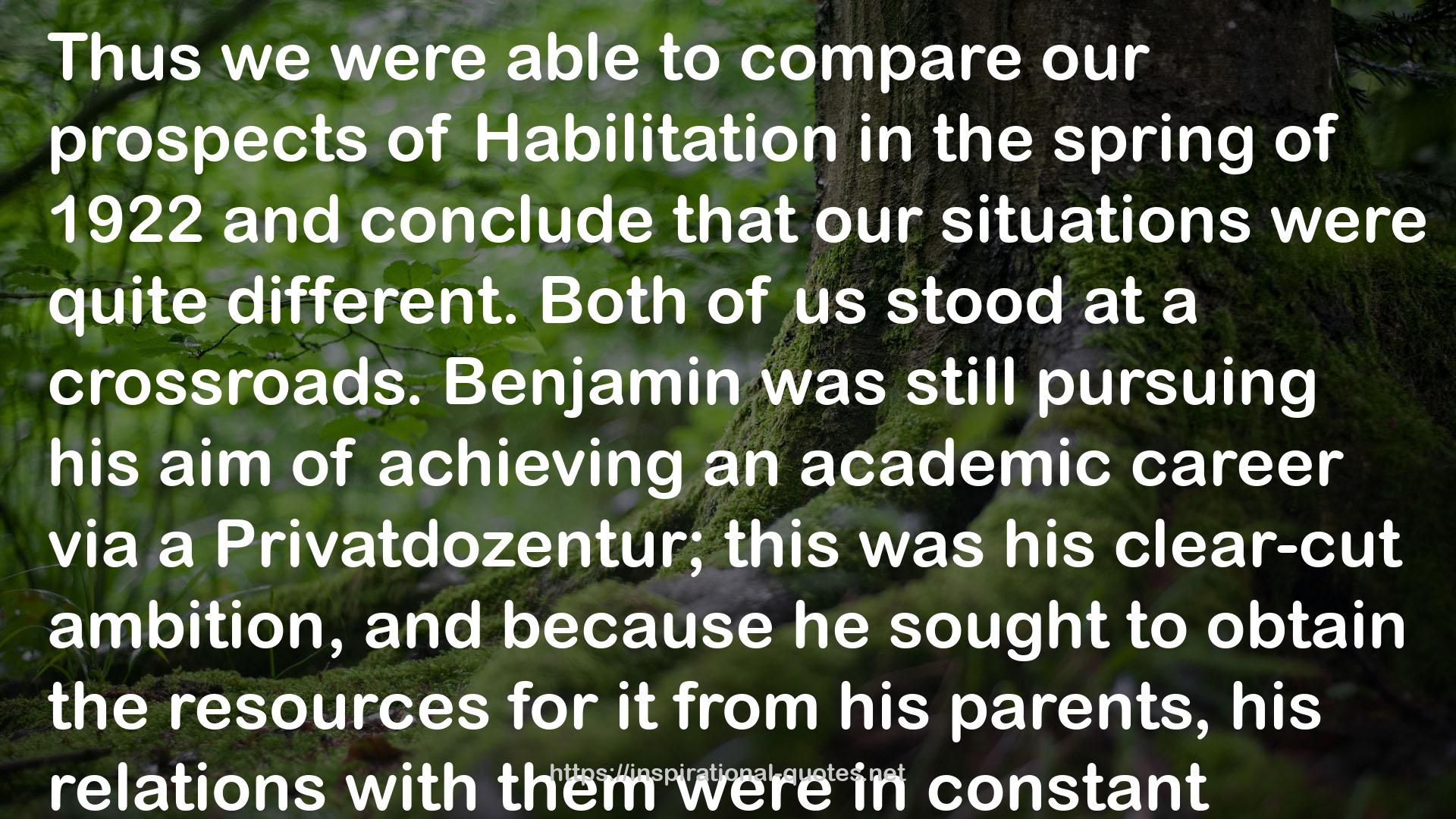" Thus we were able to compare our prospects of Habilitation in the spring of 1922 and conclude that our situations were quite different. Both of us stood at a crossroads. Benjamin was still pursuing his aim of achieving an academic career via a Privatdozentur; this was his clear-cut ambition, and because he sought to obtain the resources for it from his parents, his relations with them were in constant turmoil. To me, however, the renunciation of ambition was a primary factor in my decision to go to Palestine, a plan that now approached the stage of realization. Anyone who went over there in those days could not think of a career, and that I would have one later could not be foreseen. The Hebrew University in Jerusalem was not yet in existence, and no one believed that it would become a reality in the foreseeable future. To be sure, I had published a few German essays that had made some impression, as well as a book that no one was going to read. But I had to expect that in Judaic studies there would be far more thoroughly trained experts than I, one of the first in my generation who had taken up such studies quite independently and without any intention of becoming a rabbi. I believe it was the moral element in this decision that contributed to Benjamin’s great trust in me, a trust that he continued to entertain for a long time to come. "
― Gershom Scholem , Walter Benjamin: The Story of a Friendship
